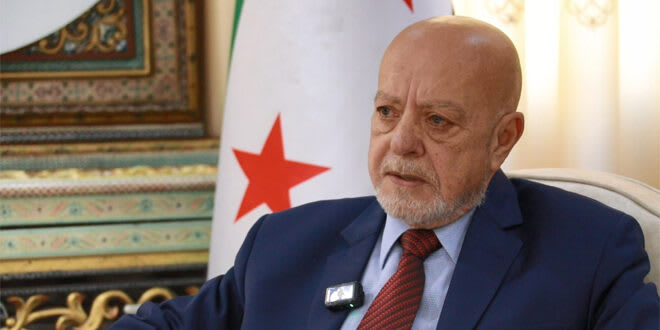Syrischer Wirtschaftsminister: Neue Pläne für den Aufbau der "Neuen Syrischen Wirtschaft".

In a special interview with the "Syrian Arab News Agency (SANA)," Minister of Economy and Industry Dr. Mohammad Nidal Al-Shaar revealed the government's directions for reforming the Syrian economy after years of "chaos and corruption" during the rule of the former regime, emphasizing its efforts to build a new economic model that takes into account local and international challenges.
Disintegrated Random Economy... Reform Starting from the Base
The former Syrian economy was described by the minister as "random, fragmented based on the measurements of some corrupt individuals, and therefore lacked a clear identity," posing significant challenges for the government and the people. He explained that solutions require "developing realistic economic plans in which the people participate in decision-making."
He added that work is underway to shape a new economic model that "suits the new Syria," which can be described as a "free market economy," but within regulations that protect the interests of the people and consider the international situation.
Sanctions... Burden on the People and Positive Signals for Lifting
The minister pointed out that the "unjust and unfair sanctions" imposed on the former regime continue to burden the people, expressing understanding from some countries like the European Union and the United States towards the new reality, receiving positive signals regarding the recent reduction of sanctions.
He also noted that Syria's return to the global banking system (SWIFT) will create a "qualitative leap" in the economy, attracting investments and facilitating the flow of funds.
Reforming the Public Sector and Supporting Small Projects
The minister revealed the completion of the evaluation of dozens of facilities and companies belonging to the public sector, stating that some of them "need to be developed," while others "are hopeless and were in favor of the corrupt." He emphasized that the reform plan includes leasing, selling, or investing in these facilities through mechanisms like "BOT" and "BBT," while preserving skilled labor.
He also stressed the importance of medium and small projects as a "cornerstone of the economy," criticizing their previous neglect, and indicating that the current circumstances require starting with small projects as a "nucleus for larger projects."
Shadow Economy... Reforming Systems to Limit its Spread
The minister linked the spread of the shadow economy to the presence of "loopholes in economic systems and unfair laws," affirming that "a fair economic system and clear monetary policy" will gradually eliminate it. He criticized previous practices that led to "manipulating exchange rates and spreading corruption."
Ministry Integration... Step to End Contradictions
He explained that the integration of the ministries of industry, economy, and internal trade was aimed at stopping "contradictions in decisions," indicating that unification will achieve economic integration and end policy conflicts.
Business Councils and Advisors... Mechanisms to Support Decision-Making
The minister announced the government's intention to establish Syrian business councils in sister countries and the United States to enhance marketing presence, and emphasized the importance of the role of advisors in studying projects before approval.
Imported Products... New Controls to Protect Local Industry